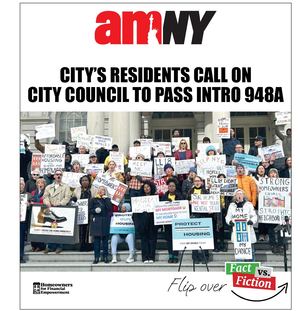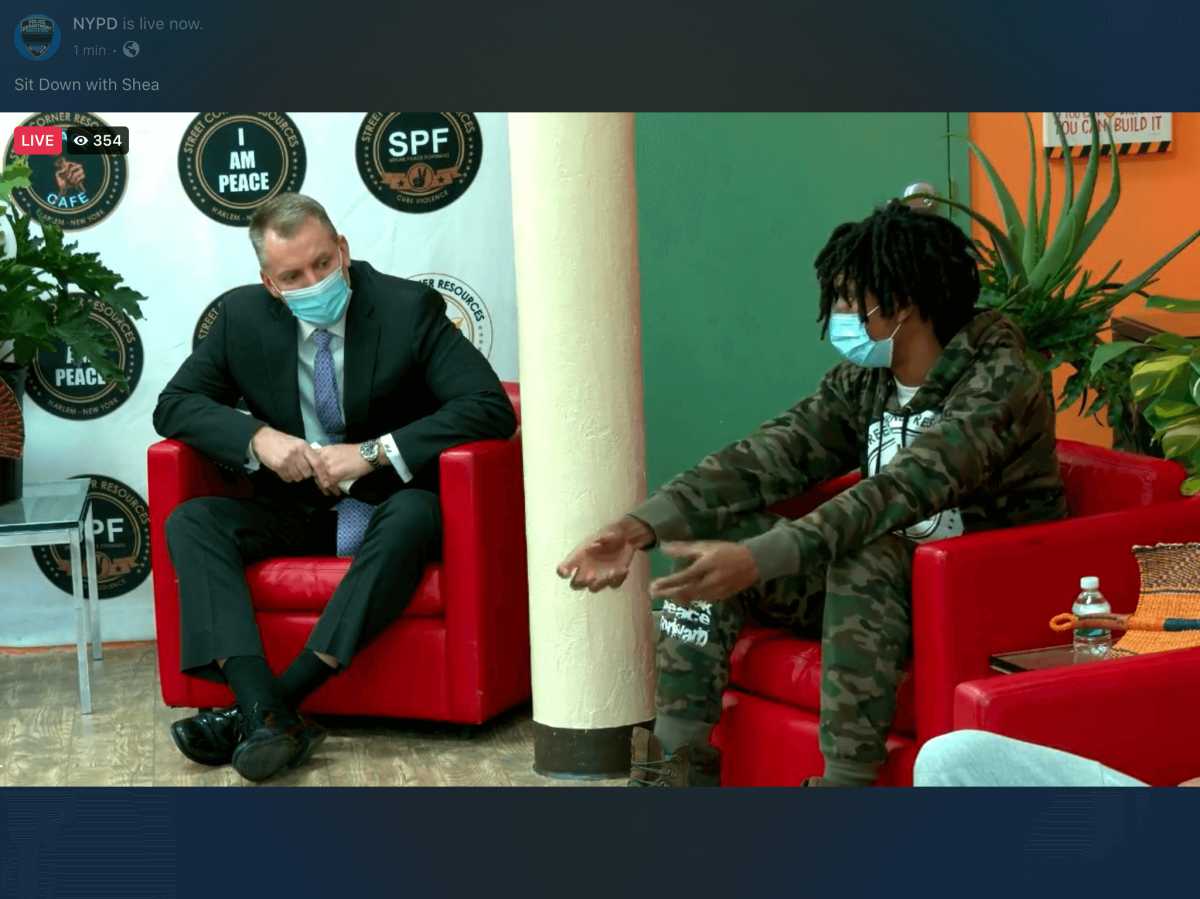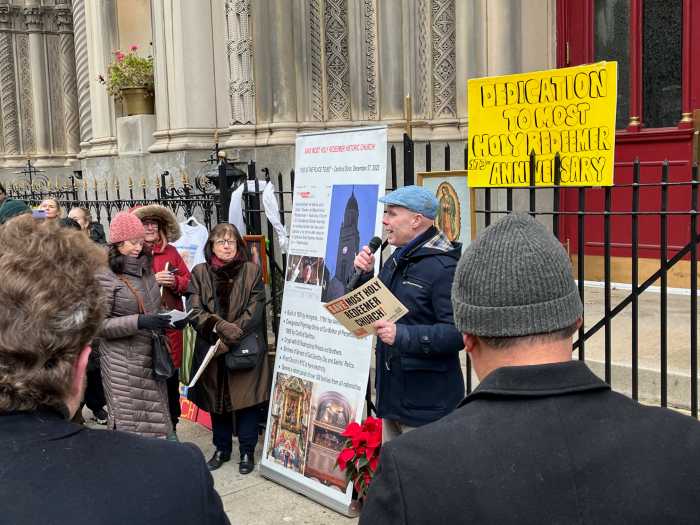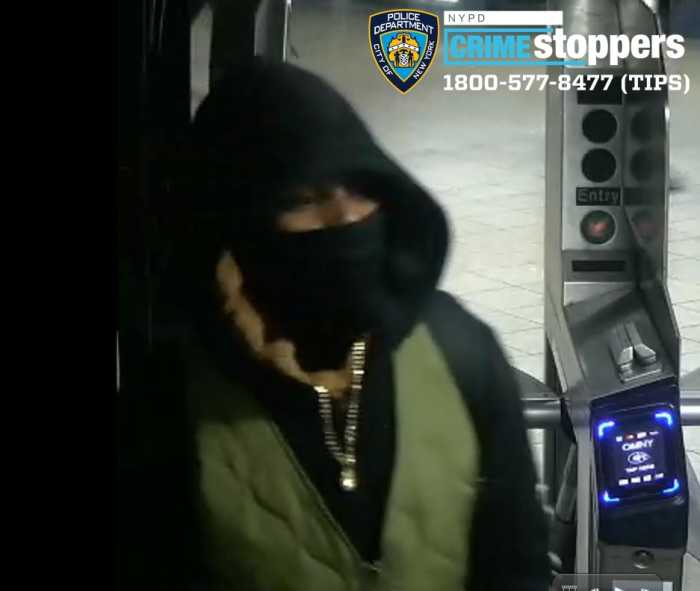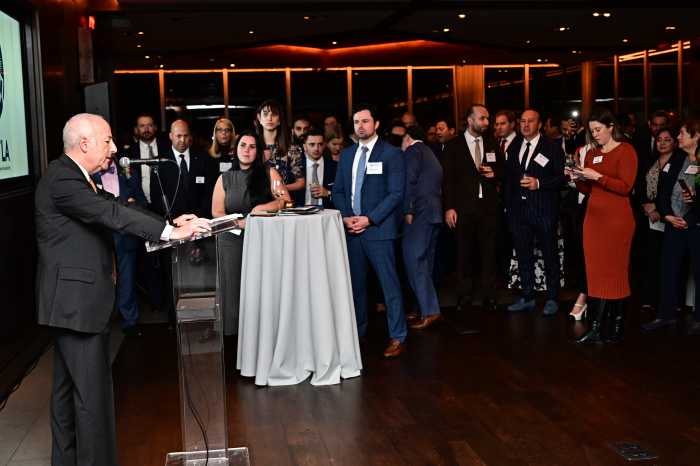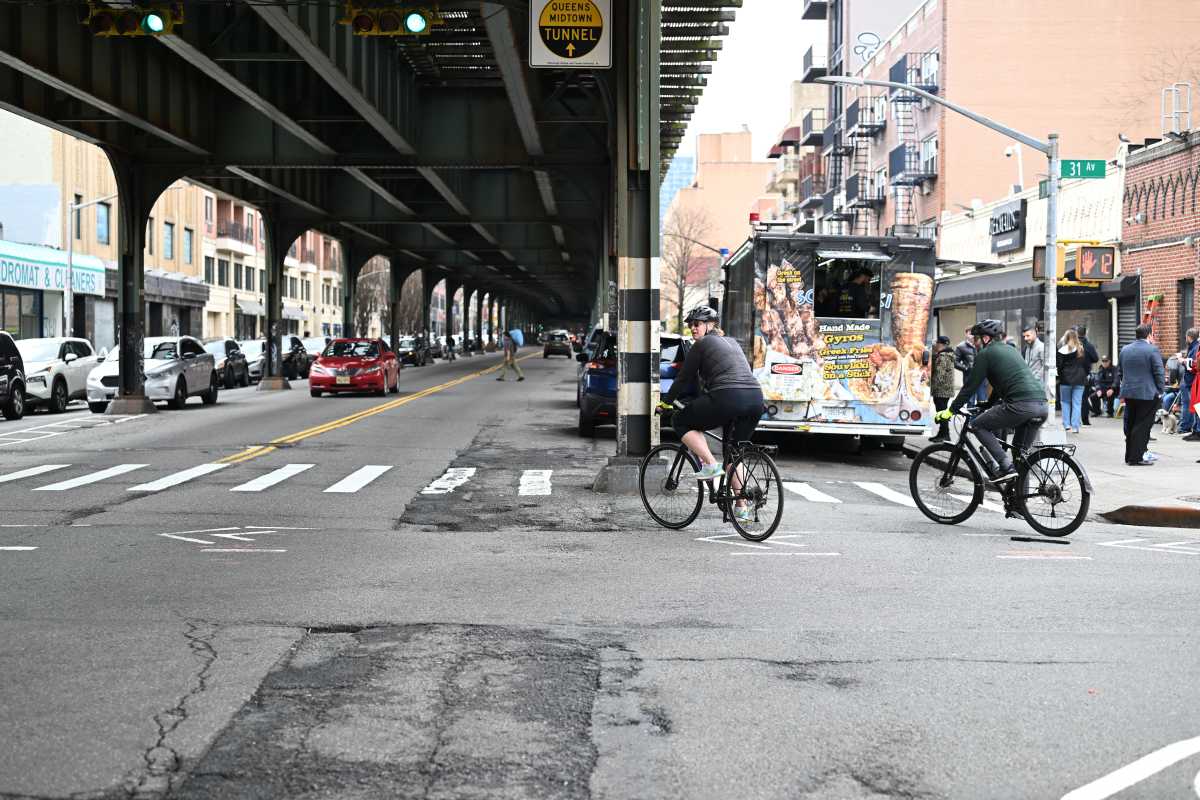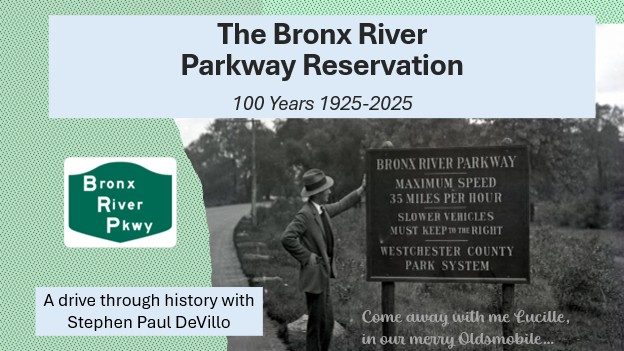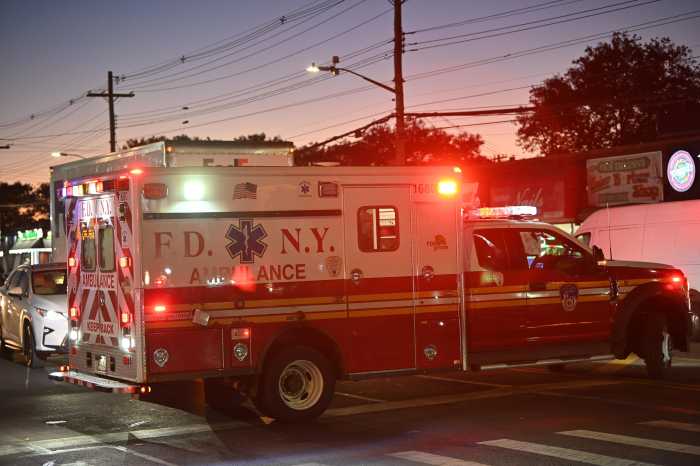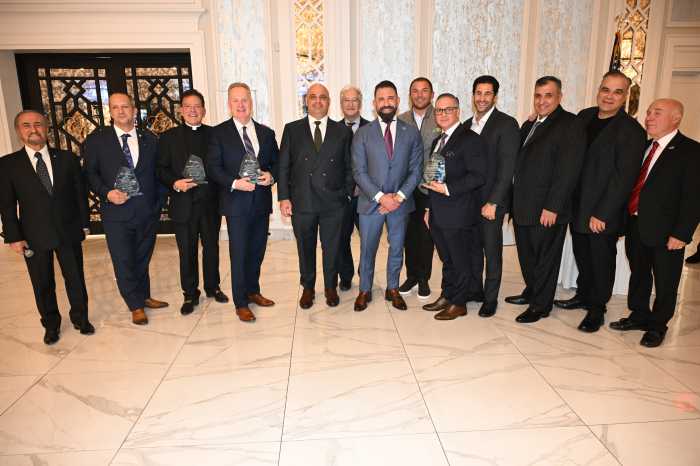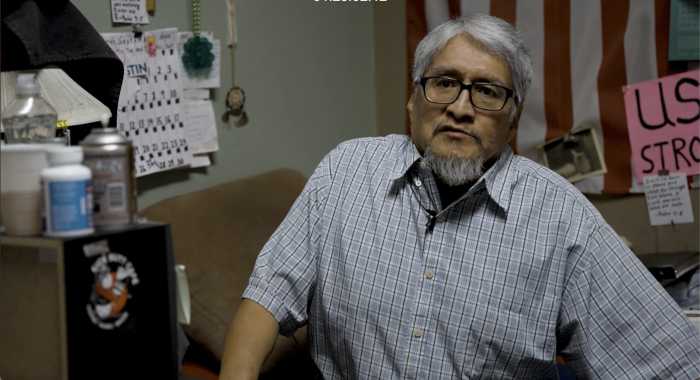Police Commissioner Dermot Shea heard harrowing stories from Harlem youths about scarring interactions they had with police officers during a conversation broadcast on Facebook Wednesday afternoon.
Broadcast live over the NYPD’s Facebook page, Shea joined Iesha Sekou and Harlem-based Street Corner Resources for what the department called a “Sit-Down with Shea.” Over the course of the hour-long talk, Shea sat and listened to young people discuss both positive and negative experiences they have had with police officers growing up.
The unscripted conversation began with the commissioner stating that he hopes to change the narrative between civilians and NYPD officers.
“We are here to have an honest and open, really hard discussion, about what’s happened in New York City over the last years, and really what’s come to a head this year,” Shea said, referencing the Black Lives Matter protests that occurred following the police killing of Minneapolis man George Floyd in Minnesota.
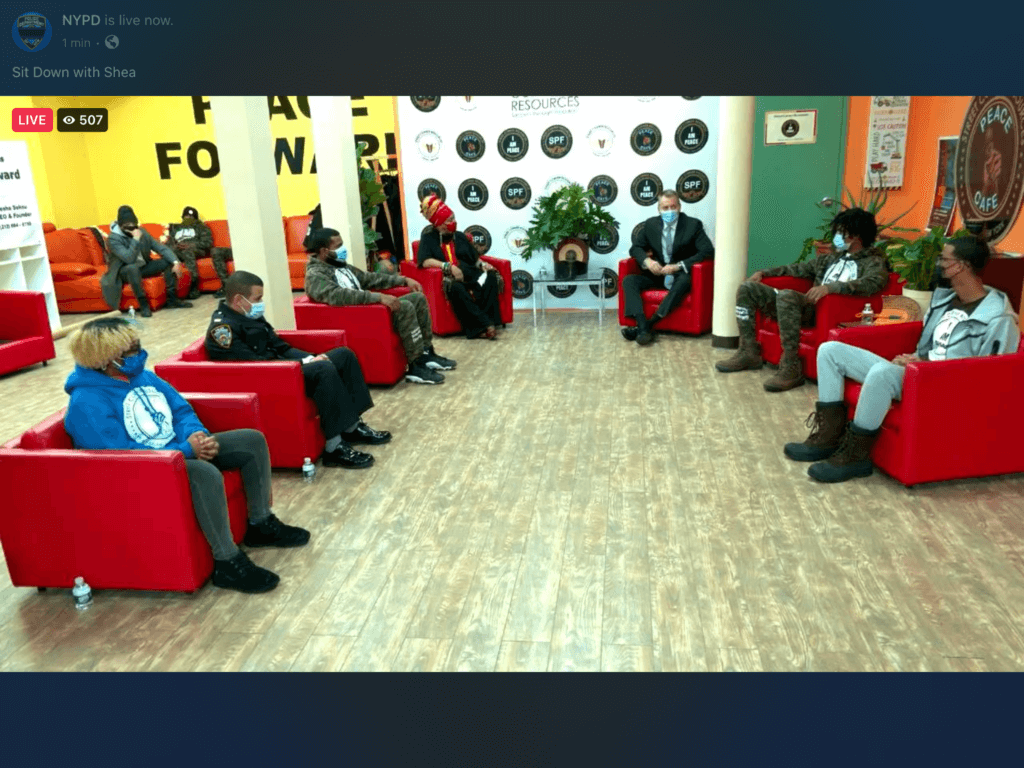
Shea says he is determined to discern how to create stronger relationships between cops and the community — especially with young people — starting with communication. He explained that he desires to get to a place where everyone can work together rather than alienate one another.
“There is too much right now when you look at this country, this city, over the last four plus years, there is a lot of yelling and talking over people. I think we have to talk to each other,” Shea said.
Shea sat silently as one by one, young participants in the conversation retold dramatic stories that have caused them to distrust police officials, some even going so far to say that they have left traumatized.
“I was 14, I was on my way home. It was about 7 or 8 o’clock and I was walking in a dark street and there were two white guys in a car. And one of them yelled at me, ‘Come here,’ but they were in plain clothes so I thought they were regular guys. I kept walking and then they jumped out their car with guns and I ran. They threw me on the ground and started searching me,” one participant, Peter, told Shea.
Upon hearing the now 19-year-old’s story, Shea asked him what the officers could have done differently to have made him feel more at ease, and if Peter would ever consider becoming an officer himself. But Peter said the encounter completely broke his trust of police, and dissuaded him from pursuing a career in law enforcement.
“Before that negative encounter happened to me when I was 14, I always said my backup plan was always to go to school for law to try and become a detective or police officer, but after that I said ‘Nah, I don’t want to do that no more,’” Peter said.
The evening continued to unfold in similar fashion, with stories of the same ilk.
Seventeen-year-old Christina said she grew up in a household where she was constantly told not to trust officers. This distrust began when her sister’s father was fatally shot by a member of the NYPD.
In an attempt to build a safe relationship with the police department, Christina’s mother would often keep her family connected to her local precinct. Both Christina and her sister ended up registering in the the Law Enforcement Explorers program.
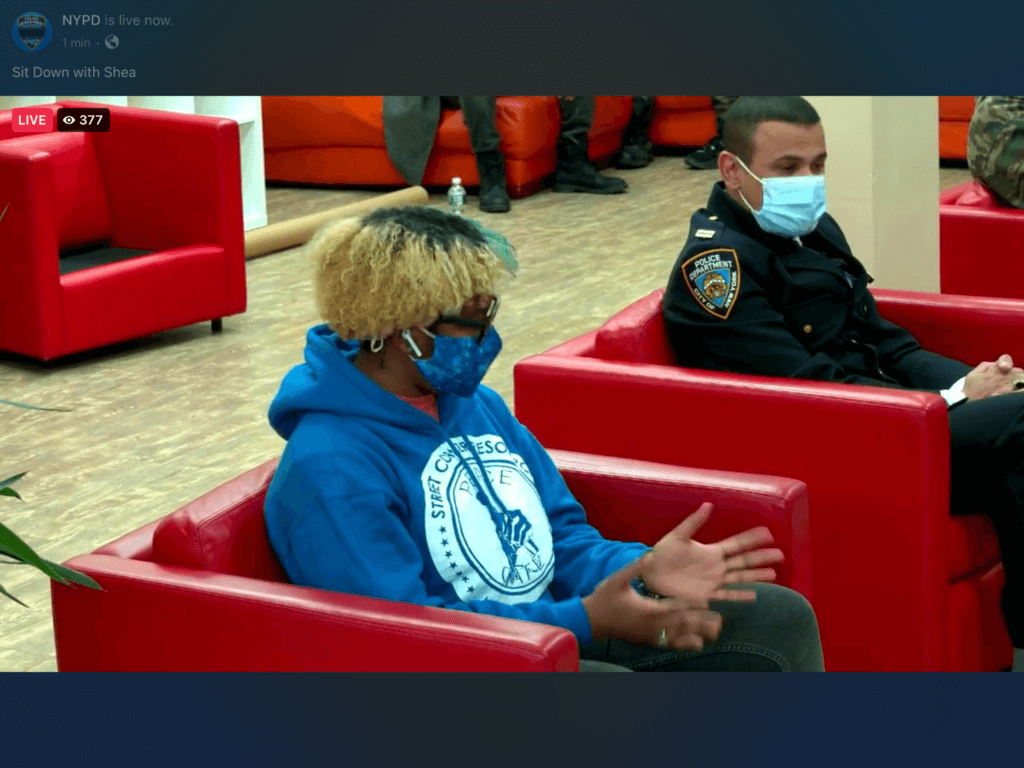
“We both always had great interactions with officers. They were always supporting us and keeping togetherness in the community, but as I got older I started to realize that they weren’t feeling the same way anymore. I didn’t feel that sense of support anymore. That sense of connection,” Christina said.
But that connection came undone, she recalled, during a party in the Bronx that was ultimately shutdown by NYPD. As Christina and her friends were leaving, she said that an officer attempted to drive over them. Christina says she was judged by the color of her skin and how she was dressed.
While no one was physically injured during that incident, she said, the dehumanizing experience has remained with her since.
“I don’t look at officers the same way because I know that there are people out there who are trying to help us, who are looking out for us, who are in the streets making sure that we are okay because I experienced that before,” Christina said.
Iesha Sekou has heard numerous stories like the ones shared during the sit-down with Shea, Sekou shared her thoughts on reform and accountability, stating that there needs to be serious oversight provided.
“There has to be expectations and outcomes in every precinct,” Sekou said.
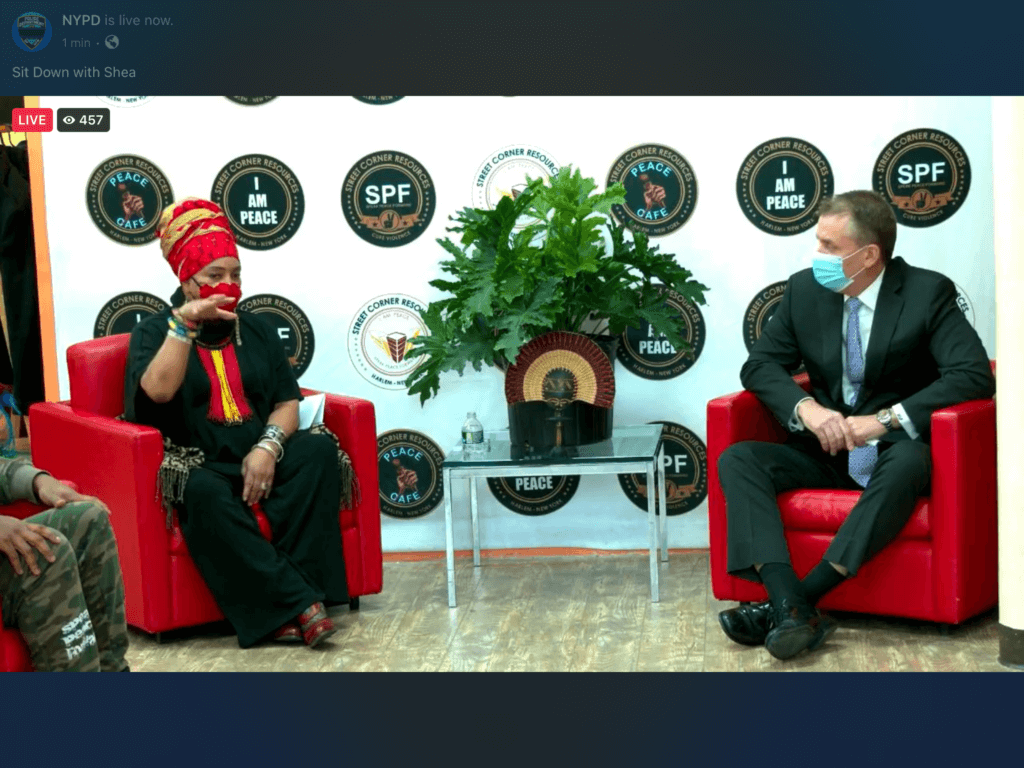
She then suggested that precinct council meetings be restructured from the very top so that everything else falls into place. Sekou says that the police need to rethink things over and focus on what the accountability is going to be and listen to the community’s input.
The commissioner assured that the good outweighed the bad at the NYPD, but that he remains committed to reforming the department and holding those who break the public trust accountable.
“The topic of discipline always comes up. I am in a position where I have currently 54,000 men and women who work for me, about 19,000 civilians — the rest are uniformed captains, chiefs, detectives, police officers. I am incredibly proud of them, I am. I think they do amazing things on a daily basis but I am not dumb,” Shea added. “I know what everyone said in this room is true and we do some bad things at times. If we had a system that people trusted, that if somebody does something wrong is held accountable and they believed it, it would take care of so much of the problems we are having today. We are working on that.”
